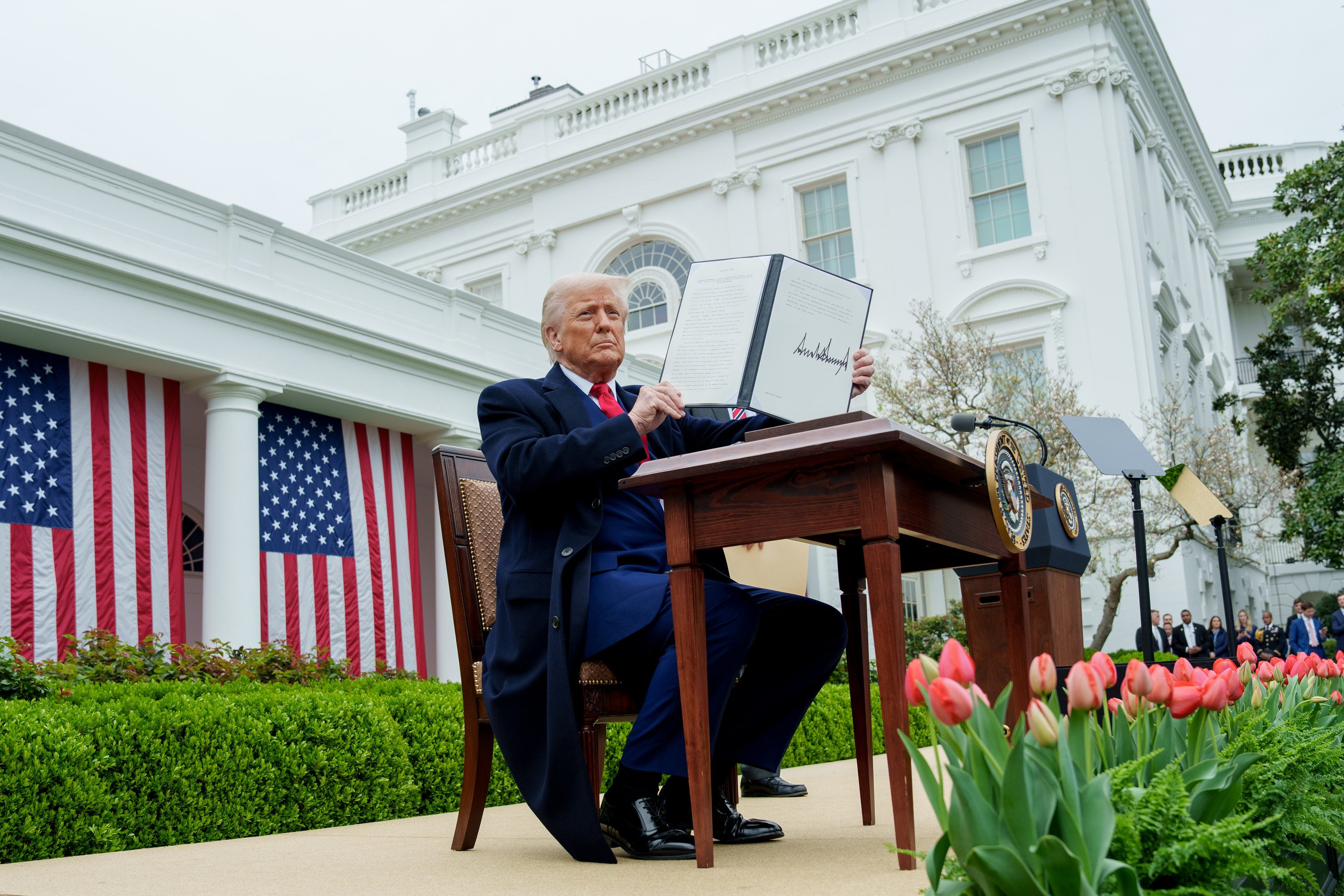Oral Argument in Kiobel: Justices Seem Inclined to Shut ATS Door Further, But Will It Remain Ajar?
The Kiobel v.
Published by The Lawfare Institute
in Cooperation With

The Kiobel v. Royal Dutch Petroleum case was re-argued in the Supreme Court Monday morning -- the first argument on the first day of the new term. The transcript is here. Readers will recall that Kiobel was first argued in February on the question of whether corporations may be held liable under the Alien Tort Statute (the so-called “corporate liability” issue); the Court then ordered the case re-briefed and re-argued on the issue of whether the ATS applies to torts committed in the territory of other countries (the “extraterritoriality” issue).
In very broad brush, the conservative justices (Roberts, Alito, Scalia) continued to question (as they had in the initial argument in February) why U.S. courts should have jurisdiction to judge torts committed in other countries, especially if the defendant is a foreign corporation accused of aiding/abetting the bad acts of a foreign government. The liberal justices (Ginsberg, Kagan, Sotomayor, Breyer) appeared primarily to be trying to preserve ATS jurisdiction over cases like Filartiga involving acts of torture or killings by foreign government officials, but they did not necessarily seem to argue for ATS jurisdiction over foreign corporations, or even U.S. corporations.
Justices Kagan and Sotomayor, in particular, did not appear inclined to agree that the Kiobel case (and other so-called “foreign-cubed” cases involving suits against foreign corporations for aiding-and-abetting the actions of foreign governments in foreign countries) should be heard in U.S. courts, or at least not until actions in other jurisdictions had been exhausted. Sotomayor seemed to be persuaded by the argument in the European Commission brief that the ATS should NOT apply unless the defendant is a U.S. national, the tort occurred in the U.S., or the plaintiff had exhausted all other avenues of relief. Kagan told Shell’s counsel Kathleen Sullivan at one point “your case might properly be dismissed,” before asking about another hypothetical case.
Justice Kennedy seemed especially concerned about the reciprocal consequences for U.S. corporations and U.S. nationals if the Court were to endorse universal civil jurisdiction, as urged by the plaintiffs. He asked plaintiffs’ counsel Paul Hoffman whether it was his position that “if a U.S. corporation commits an international law violation in the United States, that U.S. corporation can be sued in any court in the world?” Hoffman conceded this to be true. As I have previously discussed, the reciprocal application of universal civil jurisdiction by other countries over U.S. nationals has been a particular concern for the U.S. Government for many years (and is highlighted in the Solicitor General’s brief as a key U.S. interest).
Kathleen Sullivan truncated her arguments, having given ten minutes of her time to Solicitor General Don Verrilli after the Administration decided to support Shell on the extraterritoriality issue in the second round of briefing. But many of the justices (both liberal and conservative) seemed frustrated by Verrilli’s refusal to provide a clearer statement of when the ATS should apply extraterritorially, other than to say that it should not apply in the present suit against Shell but it should continue to apply in cases like Filartiga. In a significant concession, Verrilli acknowledged that ATS suits against U.S. corporations for aiding and abetting the acts of foreign governments raise the same diplomatic friction and reciprocal exposure to U.S. corporations as foreign-cubed cases. Justices Roberts and Scalia twitted Verrilli for backing away from the previous Administration’s position that the ATS should not apply extraterritorially at all.
In a smart tactic, Paul Hoffman reserved eight minutes for a strong rhetorical defense of Alien Tort Statute suits against corporations. He may have gone too far, however, in arguing that “The trend in the world today is towards universal justice for…corporations that violate these kinds of norms,” prompting Chief Justice Roberts to note that the United Kingdom and the Netherlands (both strong supporters of international human rights) did not agree.
While it is always dangerous to draw conclusions from oral arguments, it is possible that a large majority of justices might be prepared to dismiss the Kiobel case against Shell on a variety of theories ranging from 1) the ATS should never be applied extraterritorially; to 2) the ATS should not be applied extraterritorially in foreign-cubed cases; to 3) plaintiffs failed to exhaust local remedies in this case. I would not be surprised by a decision with numerous concurring opinions (as in Sosa), with a plurality of justices continuing to leave the ATS door ajar for certain cases. The liberal justices clearly want to preserve extraterritorial application of the ATS in cases like Filartiga. But it was not clear from the argument whether these justices also want to interpret the ATS to apply extraterritorially to U.S. corporations in the absence of Congressional direction, and whether Justice Kennedy might be willing to join them. And, as I have noted previously, will even the more liberal justices want to leave the door open for dozens of lower courts, and even the Supreme Court itself, to sit in judgment of the actions of foreign governments (such as China or Russia) inside their own territory, without a clear Congressional mandate?
John B. Bellinger III is a partner in the international and national security law practices at Arnold & Porter in Washington, DC. He is also Adjunct Senior Fellow in International and National Security Law at the Council on Foreign Relations. He served as The Legal Adviser for the Department of State from 2005–2009, as Senior Associate Counsel to the President and Legal Adviser to the National Security Council at the White House from 2001–2005, and as Counsel for National Security Matters in the Criminal Division of the Department of Justice from 1997–2001.





